
Summer 2023 Partnership Newsletter
It’s been a busy season here at the Q, with many educational programs launching across therapeutic areas. Thanks to partnerships with leading advocacy and membership organizations, we have been able Read More

Making Behavioral Changes in Clinical Trial Representation
There has been much discussion in the medical community about the imperative to improve equity in clinical trials, but what really helps when it comes to changing patient and provider perceptions? Read More

Lighting the Way Forward: Addressing Depression in People Facing Diminished Vision
Being diagnosed with macular degeneration is a shock to most patients, some of whom have no symptoms at the time. The prospect of losing some, or all of your sight can be devastating, and often leads to depression, as patients worry over the potential loss of independence and changes to their lives. Read More
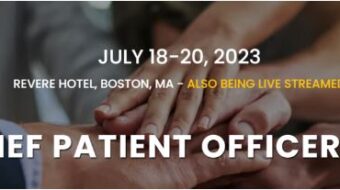
Join Us for a Conversation about Improving Equity in Clinical Trials
We’re proud to sponsor the 3rd annual Chief Patient Officer Summit, and to participate in an important conversation about improving equitable representation in clinical trials. With five years of producing digital education focused on trial diversity, we’re pleased to be able to share insights into strategies that can change behaviors and break down barriers to trial enrollment. Read More

Young Woman Forms the Chrysalis Initiative Amid Stage 4 Cancer Diagnosis
“Black women are 71% more likely to die of breast cancer than their White counterparts, so you have to question what is going on here,” she says. “Although there was knowledge in the medical community about inequities, it seemed like the default response was that this was all associated with poverty or lack of insurance, but what I found is that it’s more nuanced than that. There was bias that was contributing to these disparities. Even if a Black woman had adequate insurance and income, she was often not being presented with the standard of care.” Read More
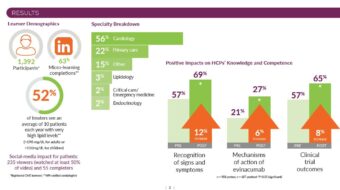
Poster Session Demonstrates Value of Patient Voice in CME Session for Familial Hypercholesterolemia
Data collected before and after continuing medical education on the management of familial hypercholesterolemia (HoFH) showed that provider knowledge and competence was notable improved after the session. A poster session presented at the 2023 National Lipid Association Scientific Sessions demonstrated that CME that included patient voice enhanced the ability of providers to adapt to the changing HoFH treatment landscape. Read More
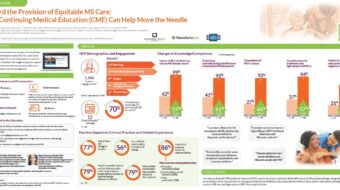
CME Education Improves Competencies around Treatment of Multiple Sclerosis for Diverse Patients
There is a high burden of multiple sclerosis (MS) in the Black, Asian, and Hispanic communities, yet clinicians are often not prepared to care for diverse populations of patients. To Read More
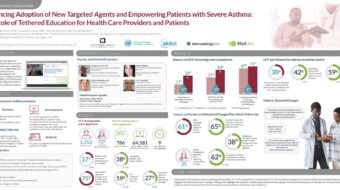
Outcomes Data Supports the Value of Tethered Education for Educating Providers and Empowering Patients with Asthma
With the growth of biologic agents to treat severe asthma, there is an increased need for shared decision-making between patients and healthcare providers. A poster recently accepted to the 2023 American Thoracic Society conference highlights the value of tethered education (otherwise called aligned education) for this purpose. This involves having a patient program, followed soon after by a provider program where we share insights from the patient program with providers. Read More
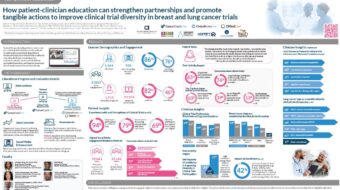
Tethered Education Helps Improve Diversity in Clinical Trials
Racial and ethnic disparities in clinical research leave many patients at a disadvantage, with lack of access to emerging therapies and lack of assurance that newly approved medications will be safe and effective for them. Read More

Spring 2023 Partnership Newsletter
We've had a busy first quater here at the Q! Check out all thats been happening in DE&I, new programs, new webinars, and so much more! Read More

Advancing Alzheimer’s Disease Management – Strategies for Early Diagnosis
Dementia is one of the biggest global health crises of the 21st century, according to leading neurologists. More than 50 million people are living with the disease, and that number is expected to triple by 2050. Roughly 60-80 percent of dementia cases are Alzheimer’s disease. Specialists are raising awareness that neurodegeneration can begin years, and sometimes decades before a person becomes symptomatic. This is one reason early diagnosis is so crucial. Read More

LUGPA Extends Partnership with PlatformQ Health
BOSTON AND CHICAGO, APRIL 19, 2023 – and PlatformQ Health have extended their partnership to deliver cutting-edge digital education to the urology community. Read More



